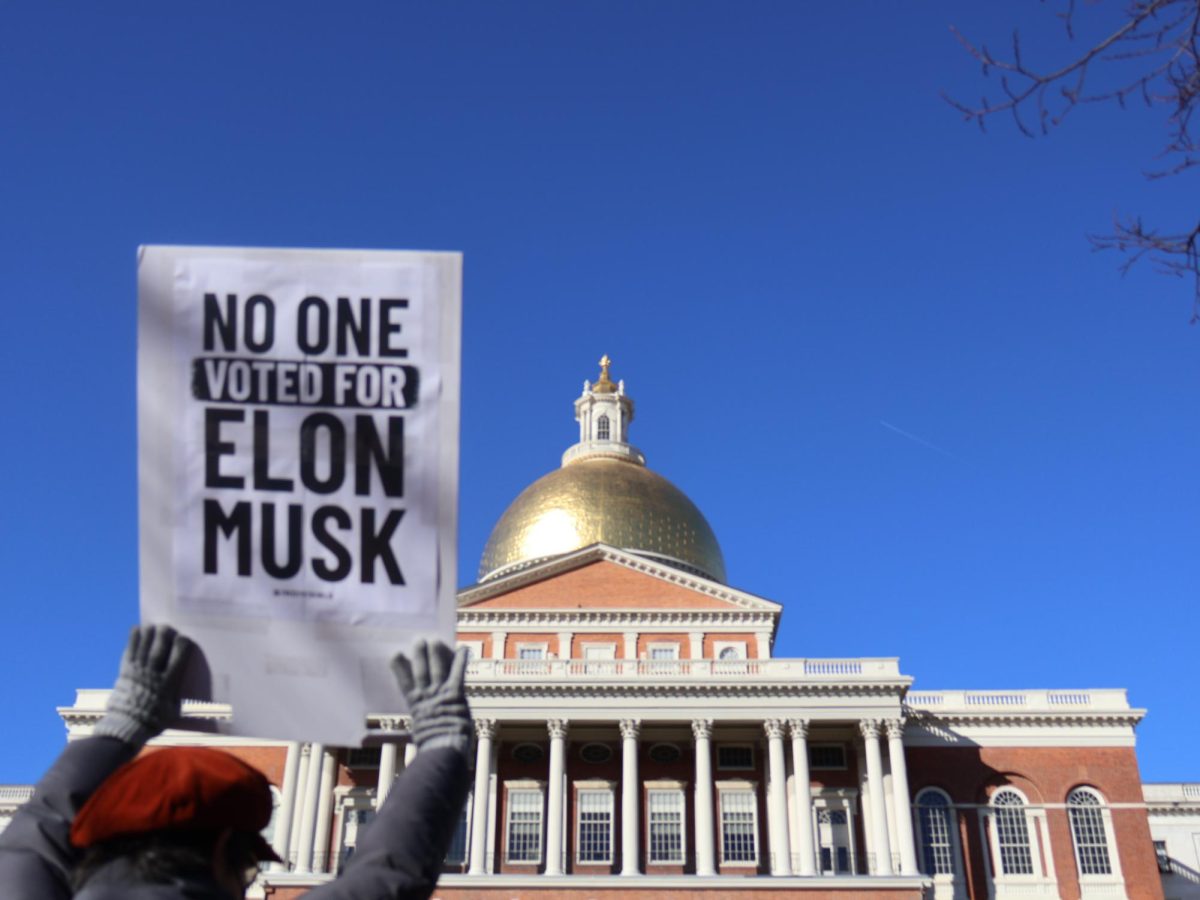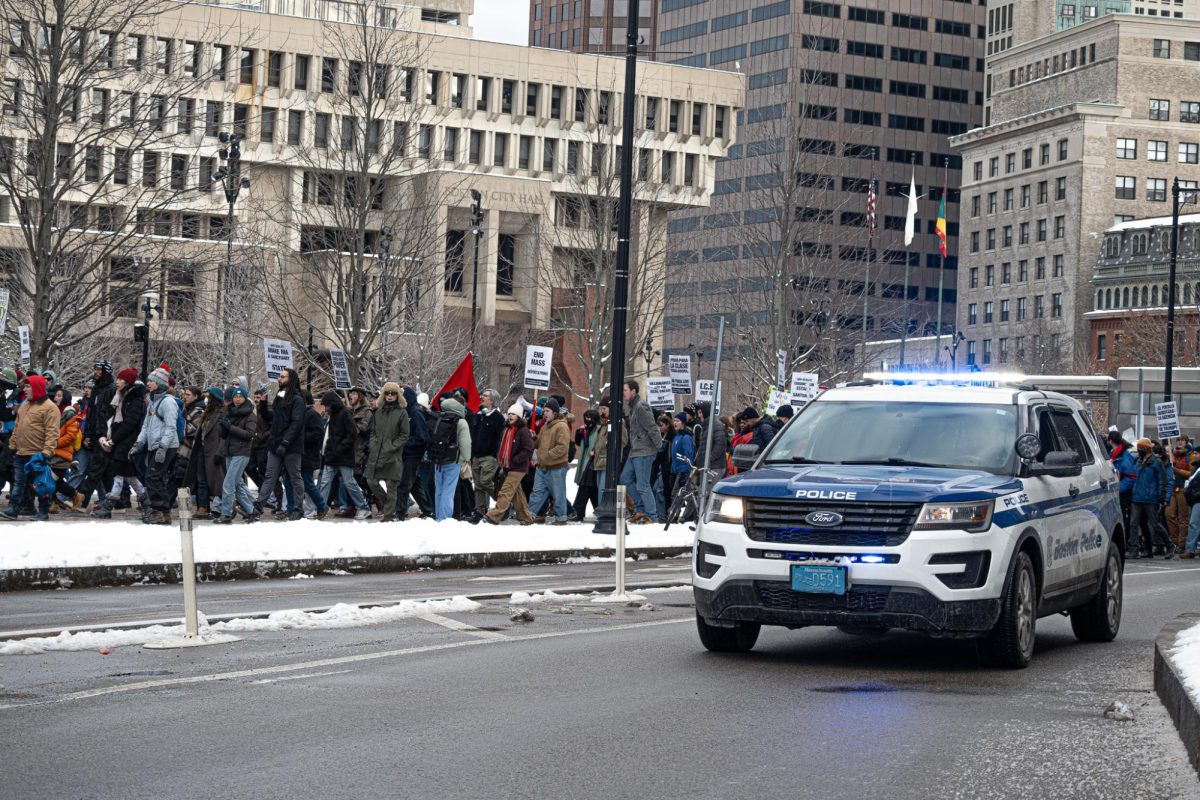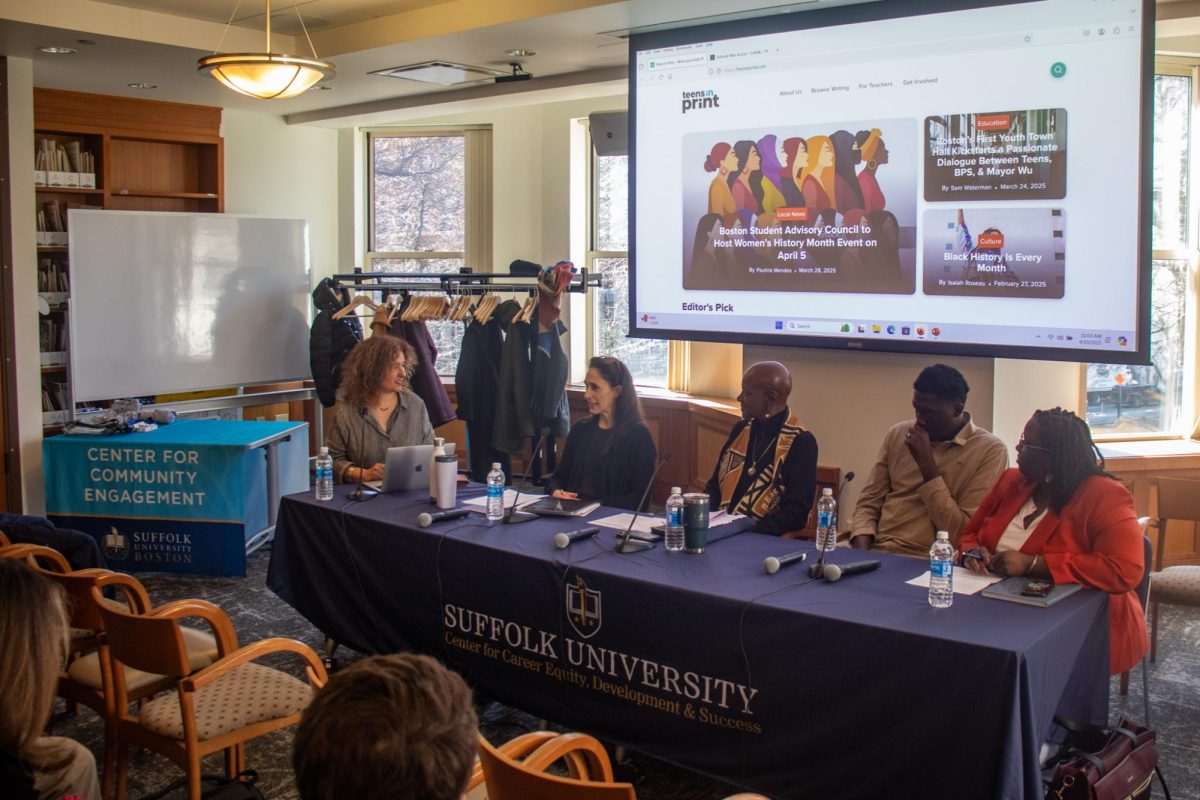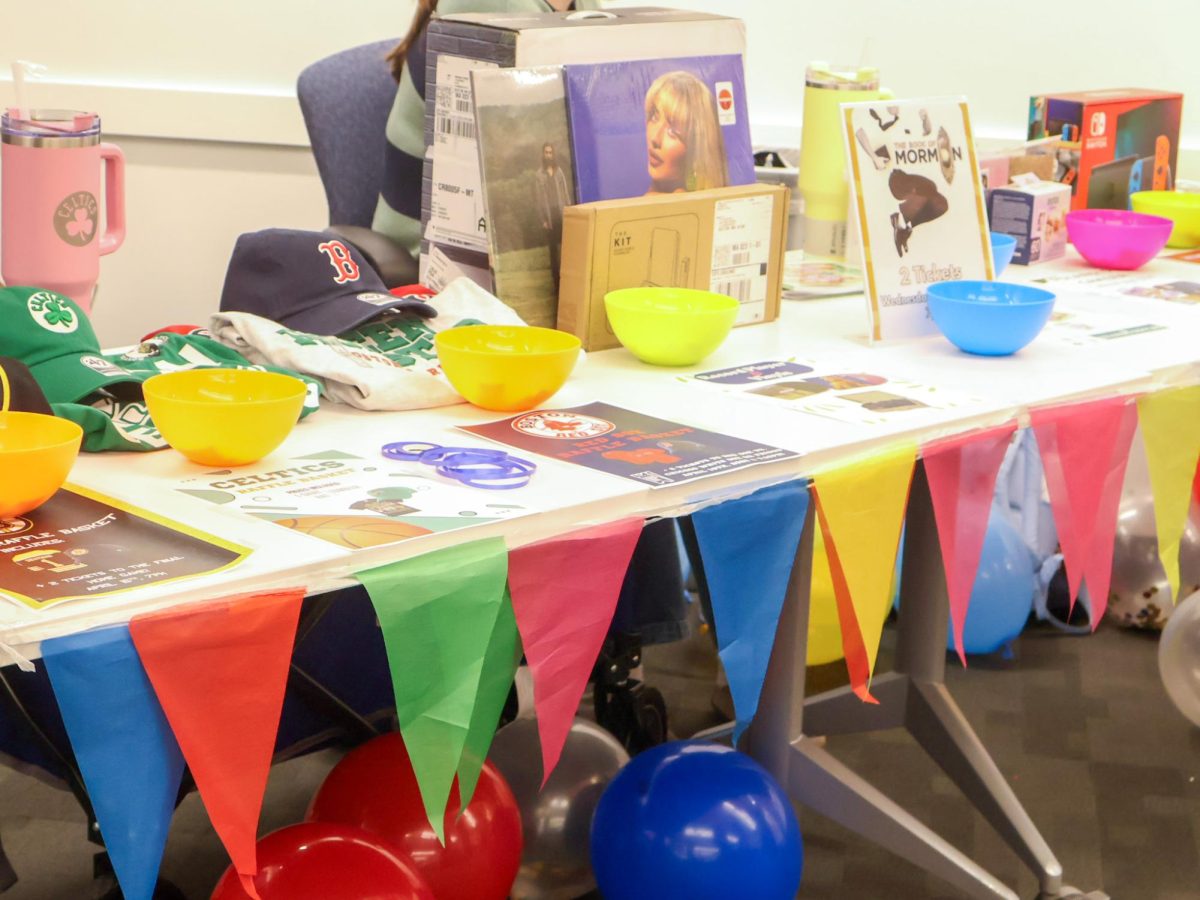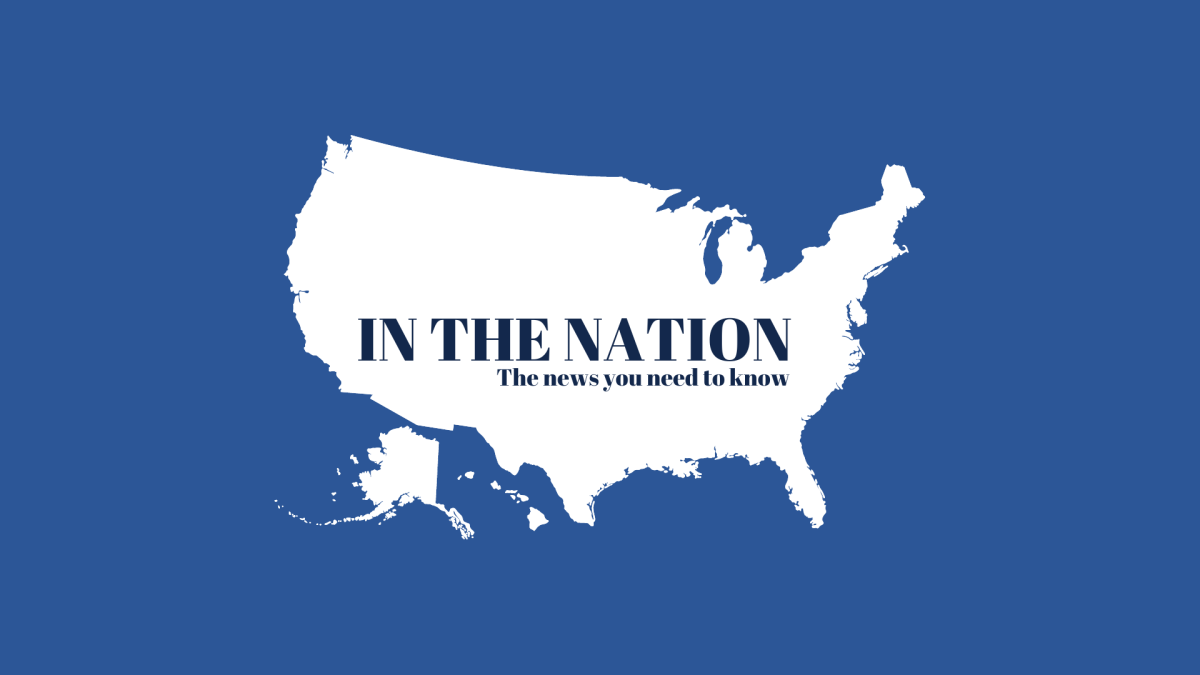Article by: Jeff Fish
“When you have polls that make that kind of an impact make sure the polls are right.”
In the race to fill Ted Kennedy’s Senate seat, which resulted in one of the biggest upsets in Mass. political history, Suffolk University polling, led by David Paleologos was the first poll that foretold Scott Brown’s stunning defeat over Martha Coakley.
The poll, released Jan. 14, (before the election) had Brown ahead 50 percent to Coakley’s 46 percent, only one percentage point off of the Election Day results (52 percent-47 percent.)
“We had to pay close attention to detail,” said Paleologos explaining that he announced Brown would win based on both a state-wide poll and three bellwethers, or towns that indicate the way the state would vote.
To find the bellwethers, which were Gardener, Fitchburg, and Peabody, Paleologos and his team had to look at similar elections and see how they voted before. “We spent enormous amounts of time [finding the bellwethers] and had to go back many years and look at like elections and make a determination based on the research. It was completely worth the time.”
The state-wide poll and the bellwethers were reported separately but yielded the same results.
While healthcare was a hot topic of the election, Paleologos said that the number one issue among those polled was the economy. Healthcare was second, but “the healthcare issue had economic spokes.”
Some of the reasons voters opposed the healthcare bill were that we already have it in Mass. and that “we couldn’t afford it.”
Recently, the Boston Globe was criticized for releasing a poll on Sunday, Jan. 10 that had Coakley 15 points ahead. Critics accused the Globe, which endorsed Coakley, of purposefully running a bad poll to discourage voters from coming out for Brown.
“I thought the criticism of the Globe poll was unfair,” said Paleologos, who explained that by the time the Globe released the poll, it contained old information from Jan. 2-6. He also said that UNH, who was partnered with the Globe for the poll, included people who said they were unlikely to vote.
Paleologos said that the trick to a successful poll is to “try to find the common denominator. We all try to get it right and do the best we can to get it accurate.”
“There was a fight internally to get a poll out earlier but I wanted to wait for the debate. By Tuesday night [the night of the debate] I knew we were going to have Brown ahead,” said Paleologos
The poll wasn’t released until two days later because “we never discuss partials, but I knew from years of experience that [Brown would win], the way the numbers were breaking.”
In a recent YouTube video about Suffolk polling, Paleologos described polling as both an art and a science. Elaborating on how polling is an art, he told the Journal that it has to do with “the questions you ask. Sometimes they’re relevant and sometimes they’re not and sometimes it’s about anticipating what might be an issue.”
Although Paleologos comes up with questions on his own, he welcomes questions from co-workers both at the research center and from Government Department faculty, as well as students from his classes and his partner at Channel 7 (WHDH), Andy Hiller.
Looking ahead to the November midterm elections, Paleologos said that the Democrats will probably lose more seats and said that “Mass. is not a bellwether. It’s a worst case scenario for Democrats.”
On the state level, Gov. Patrick is facing a tough reelection, but Paleologos said that State Treasurer Tim Cahill (I) and whoever runs as the Republican could split the anti incumbent vote against Patrick, causing him to prevail.
Of the Republicans, Paleologos said that Christy Mihos would have a better chance in the general election than Harvard Pilgrim CEO Charlie Baker, but independents probably wouldn’t vote in the Republican primary because of other state offices that will open for the election.
Before the Research Center was started at Suffolk, Paleologos was ready to leave Suffolk after teaching for seven years. Only four students were in his class because of a scheduling conflict.
The class decided to run a poll between Mitt Romney and then Gov. Jane Swift in a possible Republican Primary match up. The poll had Romney far ahead and the Boston Herald ran a similar poll a few days later. Results caused Swift to drop out.
Because of this, Hiller came to Paleologos to form a partnership. “When you have polls that make that kind of an impact, make sure the polls are right. Try to adjust for any situation. We might be wrong.”
Paleologos teaches Political Survey Research where he tries to “take a different approach. I try to help students in the fourteen weeks [during the class] and after. I urge them to use my rolodex and contacts to get jobs. I try to find out what [aspect of polling] they’re really good at. It’s the only course I teach here so I have a lot of time to spend on it. It’s an asset that a lot of other schools don’t offer.”
“The best part about the polling class is that it was one of the few really practical courses that the Government Department offers and that it gives you a skill that you can really go out in the world and use,” said Government Department office assistant and part-time professor, Meri Power, class of 2005. “[Paleologos] really gave us a good overview. It was extremely helpful and a great experience. He’s a great resource for any Suffolk student.”





